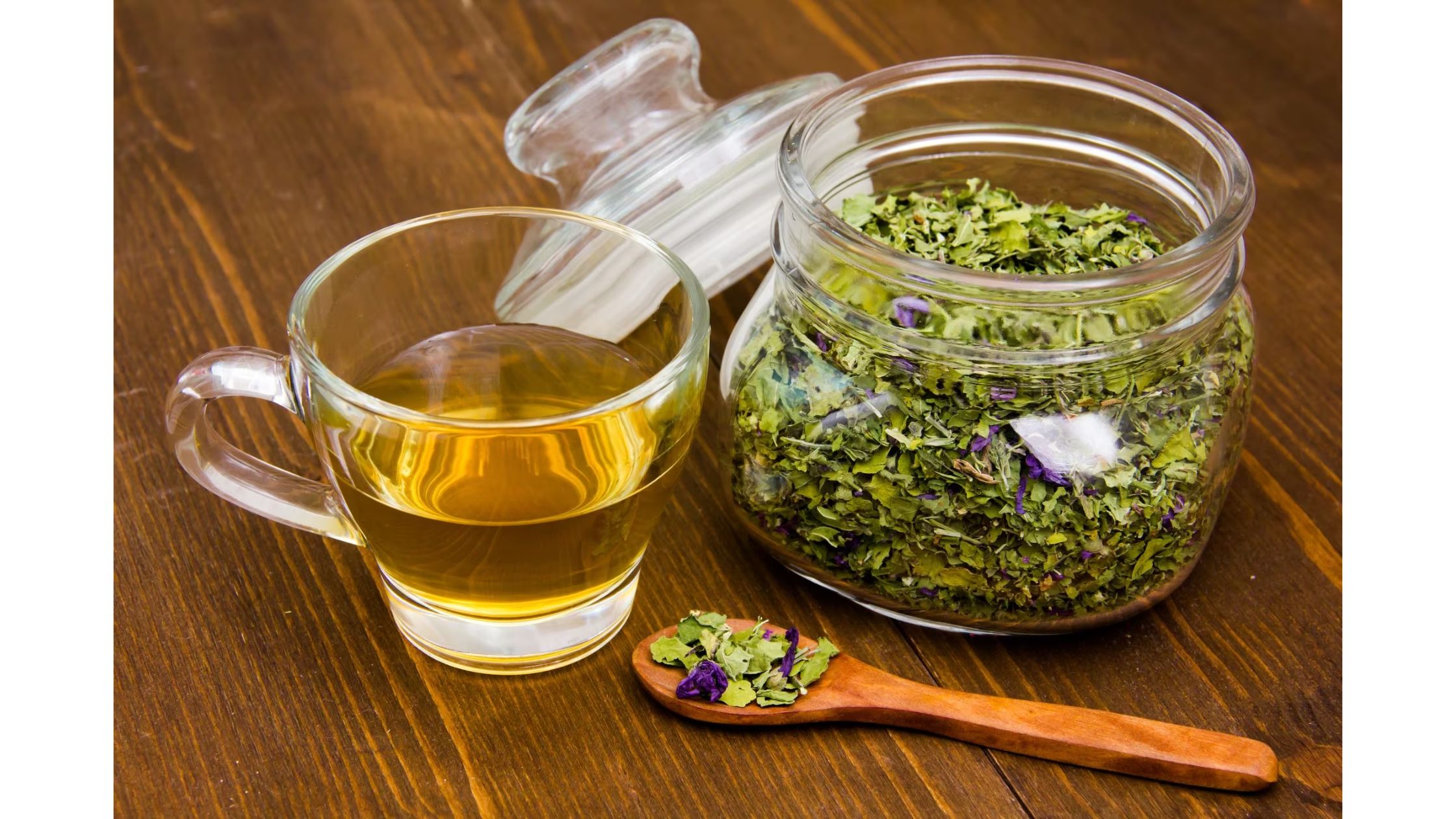In today’s fast-paced world, many people are searching for simple ways to feel calm and balanced. One natural option that keeps coming up in wellness conversations is herbal tea. Known for its calming properties, herbal tea has been used for centuries to support the mind and body.
Tea of Life Apothecary shares that the right herbal blends may offer soothing effects that help reduce tension, making it a comforting drink in stressful times. This blog explores how herbal tea works for stress relief, which herbs are most effective, and how to make it part of a relaxing daily routine.
What Is Herbal Tea?
Herbal tea is a drink made by steeping herbs, flowers, spices, or roots in hot water. Unlike black or green tea, it doesn’t usually contain caffeine. Each herb has unique properties, offering a wide range of benefits from calming nerves to helping with sleep.
While traditional teas come from the Camellia sinensis plant, herbal teas use many different plants. This makes herbal teas caffeine-free and suitable for people sensitive to stimulants.
How Does Herbal Tea Help with Stress?
Stress affects the body and mind in many ways—raising heart rate, causing sleep problems, and even lowering immune response. Herbal tea helps counter this by using natural plant compounds that support relaxation.
Calming Compounds in Herbal Tea
Certain herbs contain natural substances like flavonoids, antioxidants, and essential oils that affect the nervous system. These help reduce feelings of anxiety and promote a sense of peace without causing drowsiness.
The Role of Ritual
Drinking a warm cup of herbal tea also creates a calming ritual. The act of pausing, sipping slowly, and enjoying a quiet moment can ease mental overload and create a habit of mindfulness.
Which Herbal Teas Are Best for Stress Relief?
Some herbal teas are especially known for their calming benefits. Below are some of the most trusted herbs used in Tea of Life Apothecary’s blends.
Chamomile Tea
Chamomile is widely known for its gentle calming effect. It is often used before bed to promote sleep but is also effective during the day for soothing nervous tension.
Lavender Tea
Lavender tea has a pleasant floral flavor and a strong reputation for reducing anxiety and emotional stress. It also helps improve mood and sleep.
Lemon Balm Tea
Lemon balm is a citrus-scented herb from the mint family. It’s often used to ease anxiety, improve focus, and create a sense of well-being.
Peppermint Tea
Although commonly used for digestion, peppermint tea also offers a refreshing aroma that helps relieve mental fatigue and clear the mind.
Passionflower Tea
Passionflower helps calm an overactive mind. It’s especially useful for people who struggle with racing thoughts or tension headaches caused by stress.
Holy Basil (Tulsi) Tea
Tulsi, or holy basil, is an adaptogen. This means it helps the body adapt to stress by balancing cortisol levels. It’s also used to support immunity.
What Does Science Say About Herbal Tea and Stress?
Modern studies support what traditional medicine has long known—herbal teas can be effective for stress management.
Scientific Findings
- A 2016 study found that chamomile extract significantly reduced moderate to severe symptoms of generalized anxiety.
- Lemon balm has been shown in studies to improve mood and cognitive performance.
- Passionflower has been used in clinical trials as a natural anxiety treatment with mild sedative effects.
Though more research is always welcomed, the evidence already shows promise for these natural stress relievers.
How to Make Herbal Tea a Daily Habit
Making herbal tea part of your routine doesn’t have to be complicated. A few simple steps can help you create a daily ritual that supports your mental well-being.
Choose the Right Time
You can enjoy herbal tea in the morning, after meals, or before bed. Some people like to sip calming tea during breaks or after a long day to unwind.
Pick the Best Blend
Tea of Life Apothecary offers a wide variety of herbal blends, each crafted with specific wellness goals in mind. Choosing the right blend for your stress level is key.
Create a Calming Environment
Light a candle, sit in a cozy spot, and take deep breaths as you sip. This turns the act of drinking tea into a moment of peace.
Tips for Getting the Most Out of Herbal Tea
Here are some useful tips to make sure your tea works effectively:
Use Fresh Ingredients
If you’re brewing your own tea, make sure herbs are fresh or properly dried. The quality of herbs affects the strength and aroma of the tea.
Steep Properly
Let your tea steep for at least 5–10 minutes to release the beneficial oils and nutrients. Covering the cup while steeping helps retain essential oils.
Avoid Sweeteners
Avoid using too much sugar or artificial sweeteners. These may reduce the calming effects and can also increase stress hormones.
Can Everyone Drink Herbal Tea?
While herbal tea is generally safe, there are a few considerations.
Pregnancy and Medication
Some herbs are not recommended for pregnant women or people taking specific medications. Always check with a healthcare provider if unsure.
Allergies
People with allergies to certain plants should avoid related herbs. For example, those allergic to ragweed may need to avoid chamomile.
The Tea of Life Apothecary Difference
Tea of Life Apothecary specializes in high-quality herbal blends created with intention. Every ingredient is chosen for its purity, purpose, and proven benefit.
Their stress-relief teas are made in small batches to ensure freshness and potency. Whether someone needs help winding down or staying calm during the day, there’s a perfect blend available.
Why Choose Tea of Life Apothecary?
- Organic herbs
- Thoughtfully crafted blends
- Eco-friendly packaging
- Holistic wellness approach
These details make every sip not just enjoyable but supportive of long-term mental health.
Herbal Tea vs. Other Stress Remedies
Let’s take a look at how herbal tea compares to other common ways to reduce stress.
Herbal Tea vs. Coffee
Coffee is a stimulant and can worsen anxiety in sensitive people. Herbal tea offers calm without the crash, making it ideal for those trying to reduce caffeine intake.
Herbal Tea vs. Supplements
Herbal teas offer a natural, enjoyable way to support wellness without pills or capsules. It also allows the body to absorb benefits slowly through digestion.
Herbal Tea vs. Meditation
Tea can complement practices like meditation or yoga. Drinking herbal tea before or after mindfulness activities may enhance their effects.
Real Stories from Herbal Tea Drinkers
Many people have shared their experience using Tea of Life Apothecary’s herbal teas to manage stress.
Emily, 29
“I used to get tension headaches after work. I started drinking their chamomile-lavender blend every evening and noticed a big change. It’s now part of my nightly routine.”
James, 42
“As a dad with two jobs, I needed something to help me stay calm. Their lemon balm and holy basil tea gives me that balance I was missing.”
These stories show how small habits, like drinking tea, can lead to big changes in how we handle stress.
Is Herbal Tea the Ultimate Stress Solution?
While herbal tea may not solve every problem, it offers a gentle, accessible way to manage stress naturally. It works best when paired with healthy habits like rest, exercise, and emotional self-care.
With blends made by trusted sources like Tea of Life Apothecary, it’s easy to find a tea that suits individual needs and taste preferences.
Final Thoughts
In a world full of deadlines and distractions, finding natural ways to unwind is more important than ever. Herbal tea offers not just a drink but a peaceful pause in the day. With its natural calming compounds, enjoyable flavors, and time-tested benefits, it may indeed be one of the simplest secrets to reducing stress.
Those looking for high-quality, carefully crafted herbal teas should explore the offerings from Tea of Life Apothecary. Each blend is made with the belief that wellness begins with simple, daily moments of care.
Here, you can read more articles.


